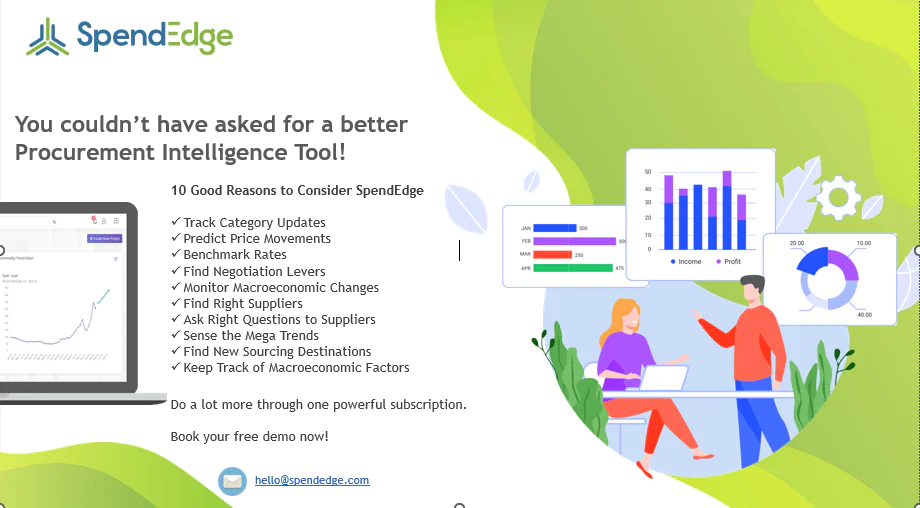What is Risk Management Strategy and Why is it Crucial for the Automotive Industry?
The rapid pace of evolution and advancement across industries has given rise to various novel and crucial factors that significantly impact the growth and expansion of companies. These factors include a rise in growth drivers, profitable opportunities, competitive challenges, and industry risks. In the automotive industry, developing and executing an efficient risk management strategy is crucial to the sustainable, effective, and strategically sound success of a company. A risk management strategy entails developing clear business objectives, identifying risks that may potentially impact efficiency and success rates, and developing robust systems to minimize the damage or impact caused. In the growing automotive industry, there has been a significant rise of risks and challenges, causing companies to leverage various processes and systems to overcome the challenges within their industry and stay ahead of the curve. Succeeding in a fast-paced and evolving market like the automotive industry is challenging, and often requires the use of accurate data, robust systems, and sustainable business solutions.
In today’s rapidly evolving business landscape, companies face numerous factors that impact their growth and expansion, such as emerging growth drivers, lucrative opportunities, competitive pressures, and industry-specific risks. In the automotive industry, creating and executing a robust risk management strategy is crucial, which involves defining clear business objectives, identifying potential risks to operational efficiency and success, and implementing comprehensive systems to mitigate these risks. There are numerous challenges in the automotive industry—ranging from technological advancements to regulatory changes and market risks and fluctuations.
A SpendEdge Success Story
In the automotive industry, companies grapple with a multitude of risks that can impact their operations and profitability. These risks include fluctuating market demand, shifting consumer preferences, evolving regulations, stringent environmental obligations, and rapid technological advancements. As the industry continues to grow and evolve, these challenges become more pronounced, and companies that fail to address them effectively may face severe consequences, including significant financial losses, decreased market share, and increased customer attrition.
A notable case involved a leading automotive company based in Eastern Europe, which experienced a dramatic decline in efficiency, profitability, and overall growth. This downturn was accompanied by substantial monetary losses, challenges in maintaining market share, and high rates of customer attrition. The company recognized the urgent need for a strategic overhaul and sought the expertise of SpendEdge to navigate these complex issues.
SpendEdge’s experts conducted an in-depth risk assessment to identify the key factors contributing to the company’s difficulties. This assessment uncovered a range of significant and minor risks affecting the supply chain, including delays, operational disruptions, and financial inefficiencies. By working closely with the company’s supply chain team, SpendEdge was able to pinpoint these risks, categorize them based on severity and impact, and develop a comprehensive risk management strategy tailored to the company’s specific needs.
The newly implemented strategy focused on mitigating risks through a series of targeted interventions, including optimizing supply chain processes, enhancing supplier relationships, and integrating advanced risk management tools. As a result, the company was able to significantly reduce the adverse effects of identified risks, streamline operations, and achieve substantial improvements in both profitability and cost efficiency. This successful turnaround not only restored the company’s operational stability but also positioned it for sustainable growth and a stronger competitive edge in the automotive industry.
Outcome
- Established a robust reporting system for tracking risks, their impacts, and mitigation strategies. Implemented continuous monitoring and real-time risk management to prevent obstacles and adapt swiftly to emerging risks
- Ensured organization-wide clarity on business plans, strategic objectives, and goals to align new processes with the company’s primary goals. Promoted transparency across departments and the supply chain for effective risk management and adaptation to evolving business models and digital transformations
- Implemented KPIs to assess strategy success and efficiency, integrating advanced analytics and real-time dashboards for deeper insights. Enabled stakeholders to monitor performance, identify issues, and adjust strategies promptly
- Conducted a thorough examination of systems to identify and assess risks, including supplier, logistical, operational, and financial challenges. Used predictive analytics and machine learning to proactively identify emerging risks and trends
- Categorized risks based on severity, impact, and duration to ensure timely resolution of major risks and progressive handling of smaller issues. Regularly updated risk mitigation plans to address the complexities of global supply chains and geopolitical risks.

Ready to navigate risks and drive success in the automotive industry? Connect with our experts at SpendEdge to develop a tailored risk management strategy that ensures resilience and sustainable growth…




